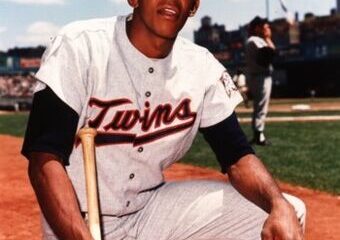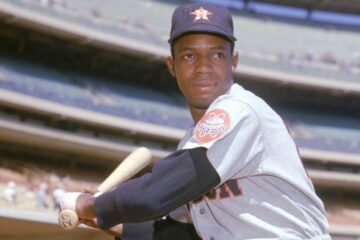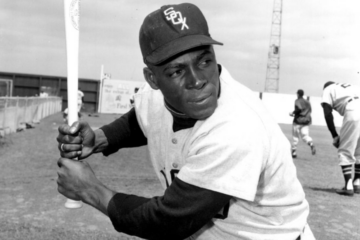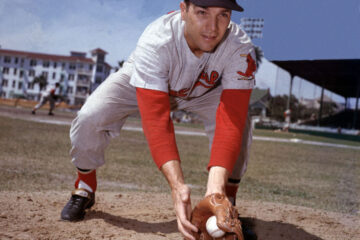The Hall of Fame Index: Omar Vizquel vs. Rabbit Maranville, Luis Aparicio, and Phil Rizzuto
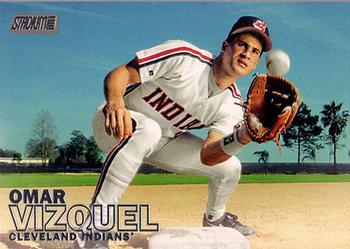
Not every position has someone ready to knock on Cooperstown’s door. Only one significant shortstop has ten or more seasons in. Elvis Andrus has the service time, but his index score is not a significant threat. Andrelton Simmons probably comes closest on the index end, but he has only eight seasons to his credit. So, we will relitigate a debate that is currently raging through the BBWAA.
You don’t make many friends when you call over half of the BBWAA voting bloc (Vizquel got 52 percent in 2020) as foolish, so it would be short-sighted to dismiss them. There are certainly points in Vizquel’s favor. There are the 11 Gold Gloves (second most at the position) and more than 2800 career hits. He has more than 1400 runs scored and more than 400 stolen bases as well. However, if we’ve learned anything, we’ve learned that counting numbers don’t necessarily tell the whole story.
We’ve also learned that Gold Gloves are not necessarily a scientific look at fielding. He had only seven seasons with ten or more Rfield. While defensive runs saved were only used at the end of his career, he had only two seasons with ten or more defensive runs saved and the highest ranking he had was fourth. Clearly, he was a really good fielder, but was he a historically good fielder? Well, we are getting ahead of ourselves. Let’s compare him to similar Hall of Fame shortstops.
Career Value
| BWAR | FWAR | WS/5 | Total | |
| Luis Aparicio | 55.9 | 49.1 | 58.6 | 163.6 |
| Rabbit Maranville | 42.9 | 42.5 | 60.4 | 145.8 |
| Omar Vizquel | 45.6 | 42.5 | 56.5 | 144.6 |
| Phil Rizzuto | 42.0 | 41.3 | 46.2 | 129.5 |
Rizzuto’s place in history is complicated. Just like the current players, we have to make allowances for lost seasons. Rizzuto lost three prime seasons serving his country in World War II. We can’t assume any level of performance, but we could comfortably assume he would have produced at least three or four wins per season. His first two seasons were his best years arguably and if he continued to produce at those levels it would be closer to 15 wins.
So, if we add 40 index wins (remember we have three different platforms) then he ends up north of Aparicio in career value. He is also the only player above to win an MVP award. We will see later if it was deserved. So, maybe he doesn’t really belong in this grouping for historical reasons that move beyond the index. As we will see, Vizquel is very comparable to Maranville and Aparicio.
Peak Value
| BWAR | FWAR | WS/5 | Total | Index | |
| Aparicio | 36.8 | 31.8 | 35.0 | 103.6 | 267.2 |
| Rizzuto | 41.3 | 40.2 | 43.6 | 125.1 | 254.6 |
| Maranville | 32.6 | 32.5 | 37.8 | 102.9 | 248.7 |
| Vizquel | 29.3 | 27.9 | 33.2 | 90.4 | 235.0 |
These numbers shift over time. This is the primary reason I never set hard and fast rules about what belongs in and what belongs out. It is always more important which neighborhood you are in. I’m not as concerned about the fact that Vizquel trails any of these guys, but the fact that these are the guys we are comparing him to. The problem with the “if…then” argument is that it naturally assumes that the “if” is accurate.
We are excluding Rizzuto for the time being. I’ve addressed his situation in a previous article, so he very well could have eclipsed the 300 win barrier with those additional seasons. We will naturally continue posting his numbers here as a natural comparison, but Vizquel very closely matches Maranville and Aparicio. The backdrop of this whole conversation is a simple question: do they actually belong in the Hall of Fame?
Offensive Numbers
| OPS+ | Rbaser | OW% | wOBA | |
| Rizzuto | 93 | 24 | .483 | .335 |
| Aparicio | 82 | 92 | .449 | .296 |
| Maranville | 82 | 5 | .424 | .313 |
| Vizquel | 82 | -1 | .419 | .310 |
You could cover up those last three names and most casual fans would never be able to identify who is who. We know casually that Aparicio was an accomplished base runner. He led the league in stolen bases for eight consecutive seasons to start his career. As we saw in the beginning, Vizquel had more than 400 career stolen bases. Yet, he was virtually neutral as a base runner. This is because the real value of a stolen base is not nearly as much as we were led to believe.
However, this is all just icing on the cake. Aparicio and Maranville are marginally better offensively than Vizquel, but depending on the metric that difference is negligible. You could drop any of them in the other’s place historically and not really detect much of a difference. Now, if one believes strongly in the proposition that if Aparicio and Maranville are Hall of Famers then Vizquel should be too then it is a defensible vote at this point. If you recognize that they really shouldn’t be there then his candidacy crumbles under its own weight.
Of course, he has those 11 Gold Glove awards and the reputation as the second best modern defensive shortstop ever. We don’t have great data on the other three, but we certainly have enough to put that notion to the test. Aparicio won nine Gold Glove awards, so he also has a stellar reputation. The other two played before there were awards.
Fielding Numbers
| Rfield | DWAR | TZSS | DWS/5 | |
| Aparicio | 149 | 31.8 | 149 | 24.6 |
| Maranville | 130 | 30.8 | 115 | 28.6 |
| Vizquel | 129 | 29.5 | 135 | 25.6 |
| Rizzuto | 116 | 22.9 | 107 | 19.4 |
Rizzuto did not have the benefit of a lengthy career like the other three. Give him those three prime seasons back and he would have likely either equaled or surpassed them in some of these categories. The other three are just as close defensively as they were offensively. I wouldn’t feel comfortable picking one over the other. So, if you just go by the index and the other numbers we have seen so far it is difficult to separate Vizquel from the other two in a positive way.
This time around we are adding some extra considerations. Playoff performance is not official when looking at career numbers, so it isn’t official when looking at the index. Perhaps, Vizquel has some impressive numbers here. Unlike the times before, we will be adding stolen bases, since most of these players had speed as a part of their game.
Playoff Statistics
| PA | SLASH | HR | Runs | RBI | SB | |
| Vizquel | 264 | .250/.327/.316 | 0 | 28 | 20 | 23 |
| Rizzuto | 219 | .246/.355/.295 | 2 | 21 | 8 | 10 |
| Aparicio | 45 | .286/.318/.333 | 0 | 1 | 2 | 1 |
| Maranville | 30 | .308/.379/.346 | 0 | 3 | 3 | 3 |
Kenny Lofton hold the record for postseason stolen bases with 34. Vizquel is clearly one of the best in history in that department, but how important is that really? His .643 OPS ranks last in the group. Maranville is the only one with an OPS over .700 in the playoffs, so none of these guys really distinguishes themselves as a stellar postseason performer. Nobody really torpedoes their resume either.
The biggest problem is the mythology over certain numbers and how we inconsistently apply them. We could consider those 23 steals as a point in Vizquel’s favor, but what has happened to Kenny Lofton? He fell off the ballot after one chance with 3.2 percent of the vote. I never want to compare shortstops to center fielders, but the logic breaks down regardless.
BWAR MVP Points
| Top 10 | Top 5 | MVP | Points | |
| Rizzuto | 2 | 1 | 1 | 21 |
| Maranville | 2 | 3 | 0 | 21 |
| Aparicio | 1 | 1 | 0 | 8 |
| Vizquel | 1 | 0 | 0 | 3 |
So, it looks like Rizzuto deserved his MVP award and while and Maranville are equal in points we always have to give a little nod to players that are legitimately the most valuable player in their league. I probably mentioned this in the other article, but in case it isn’t clear, I’d say that Rizzuto’s place in Cooperstown is probably justified once we consider those three lost seasons to war service.
Let’s pretend there is a world where Aparicio and Maranville deserve their place in Cooperstown. In order to vote for Vizquel we would have to be convinced that he was as good in terms of the index, offensively, and defensively. We would have to overlook the MVP points. We would have to discount the most important playoff performance numbers. The index shows he wasn’t quite as good. The offense and defense was close, but it is hard to argue that he was better than those two.
Furthermore, it is hard to pretend that those guys deserve their spots given what we know of how the index works. So, we would have to argue that Vizquel was better. Yes, he has more hits and runs scored, but those are prejudiced by the era in which he played. Offensive numbers just weren’t as hard to come by in the 1990s and 2000s. I’d never call a vote for Vizquel as stupid, but a better one could be made.


